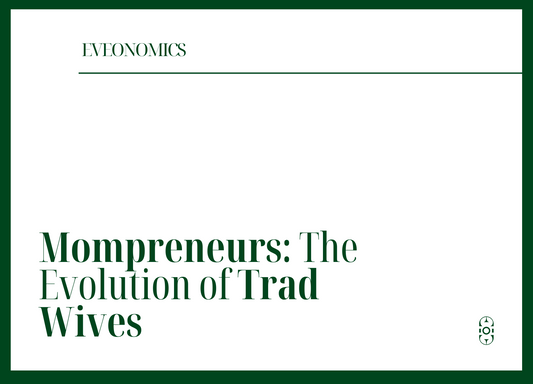In the medieval world, dominated by feudalism and male power structures, women—particularly noblewomen—played a surprisingly pivotal role in the management of family estates and wealth. While their lives were bound by the norms of a patriarchal society, the influence they exerted over economic affairs, political decisions, and the day-to-day running of vast estates was substantial. These women, who often stepped in during their husbands' absence or following their deaths, navigated the complex web of feudalism, balancing responsibility, authority, and economic sustainability.
Feudalism and the Constraints of Patriarchy
The structure of feudalism placed men at the forefront of power, with kings, lords, and male nobles controlling vast lands and the people within them. However, while male dominance defined the surface of society, noblewomen were frequently entrusted with the management of estates, especially during times of war or political instability. When husbands, fathers, or sons were away—whether on crusades, at war, or managing other estates—women stepped into managerial roles that included overseeing agricultural production, maintaining household finances, and ensuring the smooth functioning of the estate.
Yet, this responsibility came with a delicate balance. Women's authority was often conditional, granted to them as temporary stewards of their male relatives' assets. The key was learning to operate within these constraints while exercising influence over family wealth. Many women proved adept at this balancing act, managing resources with the same skill and foresight as their male counterparts.
Widows and the Power of Estate Management
Widowhood offered women one of the few paths to genuine financial and managerial autonomy. Upon the death of their husbands, many noblewomen gained control over their estates, a privilege that allowed them to make decisions regarding land, finances, and even alliances. The notable Eleanor of Aquitaine, one of the most powerful and politically active women of her time, used her widowhood to not only manage her estate but to influence European politics significantly.
Widows often negotiated marriage contracts for their children, managed financial investments, and dealt with political entities on behalf of their families. In doing so, they ensured the longevity and prosperity of their estates. However, this power was typically tied to their status as widows; once they remarried, control often reverted back to their new husbands.
Education and Skills: Women as Estate Managers
To manage estates successfully, noblewomen needed to be skilled in areas that went beyond the domestic sphere. Many were educated in estate management, learning the intricacies of financial accounting, land management, and even legal matters. Although literacy rates varied, those who could read and write had a significant advantage, as they could correspond with other nobles, manage legal contracts, and maintain financial records.
These women were essentially running businesses. Estates were large, complex operations that required efficient management of crops, livestock, and human resources. Women negotiated with tenants, monitored the production of goods, and ensured that taxes and tributes were collected. This role required not only intelligence and education but also political acumen. Managing a medieval estate meant navigating relationships with the crown, neighbouring nobles, and the church.
Legal Constraints and Opportunities
Despite their responsibilities, women in the Middle Ages faced significant legal challenges. They were not considered full legal entities in many respects, meaning their rights to inherit and control property were limited. However, there were notable exceptions. In some regions, women could inherit estates, especially in cases where male heirs were absent. This legal framework gave women a degree of power, though it often came with strings attached.
Marriage contracts often determined a woman's control over property, with dowries and jointures playing crucial roles in these negotiations. While women contributed dowries, they also expected some level of financial security in return, such as a guaranteed income or the right to live on the estate. These financial arrangements were vital in securing women's futures, especially in widowhood.
Political and Economic Influence
Some women transcended the domestic sphere to wield significant political power. Matilda of Tuscany in Italy and Empress Theodora in Byzantium are just two examples of women who leveraged their control of wealth to influence broader political outcomes. These women were not just stewards of their estates; they were strategic thinkers who shaped alliances, waged wars, and managed diplomatic relations.
Women's economic influence extended beyond Europe as well. In the Islamic world, women such as Khadijah, the wife of the Prophet Muhammad, were wealthy businesswomen who played critical roles in trade and commerce, managing significant wealth and resources.
Peasant Women and Economic Contributions
While noblewomen managed estates and political affairs, peasant women contributed significantly to the medieval economy on a more localised level. These women were responsible for household chores, farming, and often, artisanal work. Their labour was vital to the survival of villages and towns. Though they had little control over wealth in the same way as noblewomen, their contribution to the economy through agriculture and domestic work was indispensable.
Legacy of Medieval Women in Wealth Management
The role of women in managing wealth and estates during the Middle Ages laid a foundation for future generations. While often unacknowledged in historical narratives, these women ensured the stability and prosperity of their families and contributed to the broader economy of medieval Europe. Their stories challenge the perception of the Middle Ages as a time when women had little power or influence.
In reality, medieval women were critical players in estate management, agricultural production, and political life. They learned to navigate a world that restricted their legal rights and opportunities but, through resilience and skill, carved out spaces of influence that helped shape the economic landscape of their time.
Conclusion: Women as Pioneers in Wealth Management
In the grand narrative of history, medieval women may not always receive the recognition they deserve for their roles in managing wealth. However, their contributions were significant. From running large estates to influencing political alliances, these women were pioneers of wealth management long before the term existed. Understanding their role gives us a richer, more nuanced view of the Middle Ages and reminds us that women have always been integral to the management and creation of wealth.
Medieval women were not passive figures in the shadows of their male relatives; they were active participants in the economic life of their time. As estate managers, political influencers, and economic strategists, they helped shape the course of history and left a lasting legacy in the world of wealth management.
*This article is for general information purposes only and is not financial advice. We are not licensed financial advisors. Please consult a qualified professional before making any investment decisions to ensure they fit your specific financial situation.





